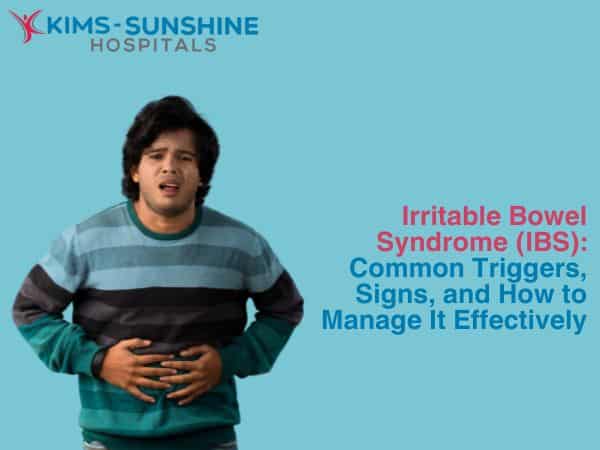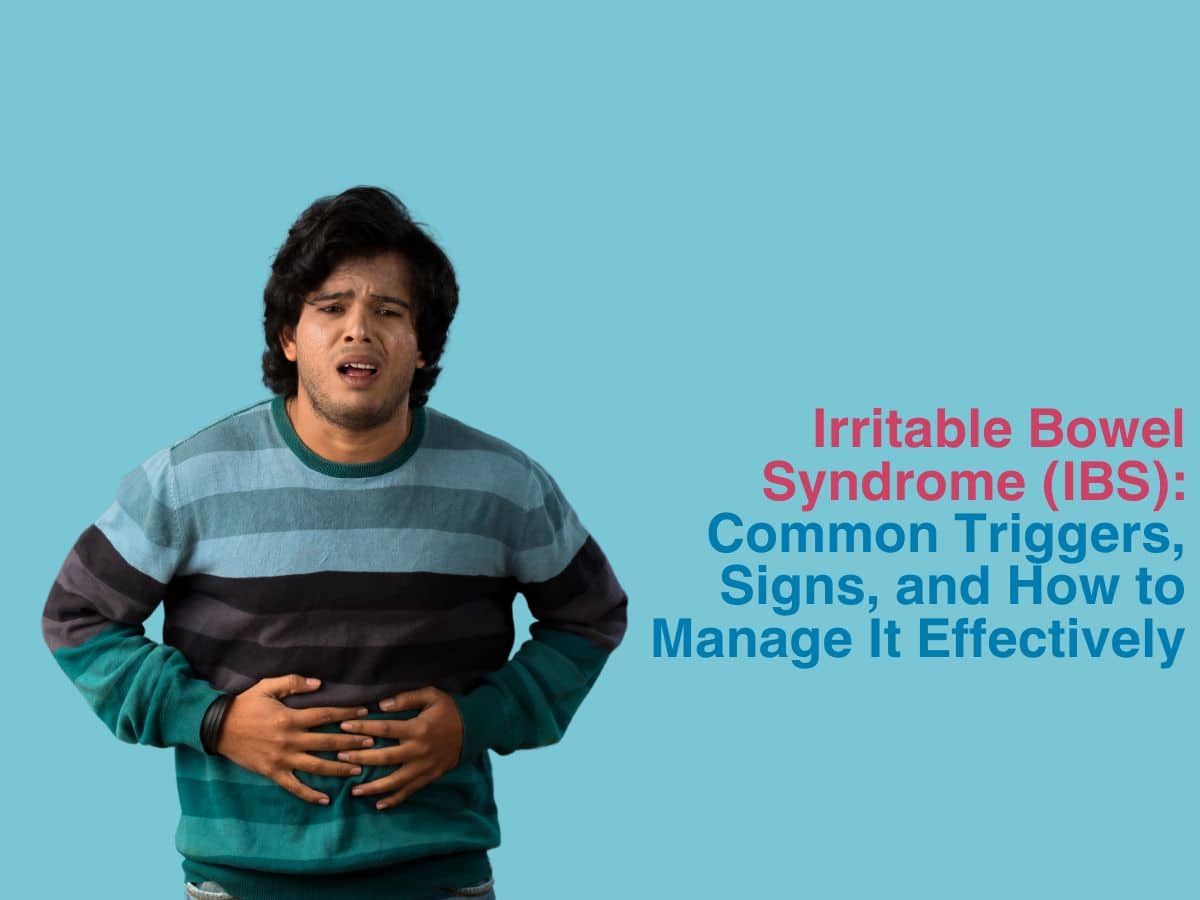
Irritable Bowel Syndrome (IBS): Common Triggers, Signs, and How to Manage It Effectively

Irritable Bowel Syndrome (IBS) is a medical condition that affects almost 4-7% of the Indian population. It may be more too, as many cases remain undiagnosed due to people not getting help or diagnostic criteria differences. It is a chronic condition that seems to come and go. The term ‘flare up’ is used when someone is symptomatic. The exact reason is still unknown though research has been able to identify certain common triggers that can cause flare ups. Since stress plays a huge role in how often or how severely you get affected, many gastroenterologists choose to call it a neuro-gastrointestinal disorder. They think that the gut-brain axis is wonky somehow and if that is corrected, then IBS flare ups won’t occur.
What Triggers Irritable Bowel Syndrome Flare-Ups?
Some of the most common triggers include hormonal changes that women deal with during their period, excessive stress and having had severe gut related infections in the past. Some people may also notice an uptick in their symptoms if they eat something with dairy, gluten or any other allergy causing foods which can increase bloating substantially.
Common Symptoms Of IBS In Men And Women-
Let us now look at some of the symptoms that signal an IBS flare up-
- You may have severe abdominal pain or have the urge to poop
- You may be farting a lot more than usual
- You could have diarrhoea or constipation or both
- You may have mucus in your poop that looks whitish in colour
- You may feel like you are still backed up, even after pooping well.
Foods To Avoid If You Have Irritable Bowel Syndrome-
Some people cannot tolerate lactose, gluten, vegetables or lentils that may be cause more bloating, highly processed, oily or sugary foods or if there is too much of fibre in your diet- like from beans, broccoli, sprouts, have too much caffeine or eat very spicy foods, as they can all cause flare ups.
How Stress Affects IBS And Ways To Manage It-
Higher stress means more cortisol and adrenaline- two hormones that you do NOT need chronically in your system. This is because they are required only in emergency situations. If you are always in survival mode, then your gut can get severely damaged- and lead to issues like constipation, diarrhoea, flatulence, bloating, incontinence etc. You may also have to deal with physical pain too. You should actively try to destress by getting CBT, going for walks or swimming, running, dancing, doing deep breathing exercises at least 3 times a day and add yoga to your routine.
Difference Between IBS And Other Digestive Disorders-
The main difference between IBS and IBD or other disorders is- there is no active inflammation or damage of intestinal tissue occurring. Learning to identify triggers and then managing them can mean very few flare ups and little discomfort. Digestive disorders like Crohn’s, colitis, celiac disease, GERD- can all be damaging to gut tissue in the long run, but cause the same symptoms as IBS. This is why getting an accurate diagnosis can be a time consuming affair.
Conclusion
IBS is an issue of the gut-brain axis as researchers have postulated over many years. It is normally diagnosed after taking a detailed medical history, getting blood work done, having a stool test, gut microbiome test etc. to check for good bacteria vs. bad bacteria in the intestine. You may also be asked to get imaging done. Maintaining a food diary can help you identify potential and common triggers.






